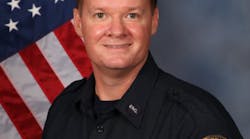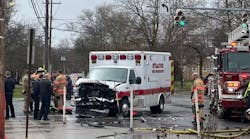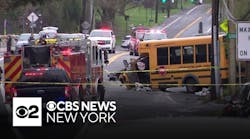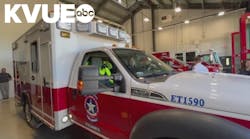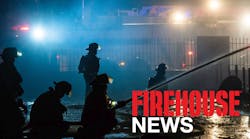Although it has taken almost a year to get the Federal Communications Commission (FCC) back up to full strength, the leadership of the public safety community has not stopped working to promote a new nationwide 700-MHz public safety broadband wireless network. Now, with all five commissioners in place, encouraging action is starting to emerge from the FCC.
On Aug. 14, 2009, the FCC Public Safety and Homeland Security Bureau (PSHSB) released a public notice: "Public safety and homeland security bureau seeks comment on petitions for waiver to deploy 700-MHz public safety broadband networks." This is the result of 13 state, regional and city waiver requests. The comment due date is Oct. 16, 2009, and reply comment due date is Nov. 16, 2009. This FCC action is encouraging and will allow the public safety community and others to comment and establish a record on the important issues raised in the public notice.
During the past year, the Public Safety Spectrum Trust (PSST), the not-for-profit organization consisting of representatives of 15 national public safety organizations, has not been idle in its pursuit of a nationwide 700-MHz public safety broadband wireless network. The PSST holds the nationwide Public Safety Broadband License (PSBL) for 10 MHz of broadband spectrum in the 700-MHz band. The PSST board has continued to meet and discuss issues in this regard and its chairman, Chief Harlin R. McEwen, has continued to meet with FCC officials, public safety representatives, and representatives of the vendor community and private sector. McEwen is a retired chief of police of Ithaca, NY, and retired FBI deputy assistant director.
In March, members of the Major Cities Police Chiefs Association (MCC) created the MCC 700-MHz Working Group to address some of the unique needs of larger cities. As a result, they invited representatives of other national public safety organizations to meet with them in April to discuss their concerns. In attendance were representatives of the MCC, Major County Sheriffs' Association (MCSA), Association of Public-Safety Communications Officials-International (APCO), International Association of Fire Chiefs (IAFC), Metropolitan Fire Chiefs Association (Metro Chiefs), International Association of Chiefs of Police (IACP), National Sheriffs' Association (NSA) and National Emergency Management Association (NEMA). A follow-up meeting of the same group was hosted at the end of May by APCO. I had the privilege and honor of being invited to participate and observe this historical event. The result was a consensus among the organizations to support an effort to get Congress to pass legislation that will remove the auction requirements for the 700-MHz D Block spectrum and allocate it for public safety and specifically to add the spectrum to the nationwide PSBL.
On June 11, 2009, the National Public Safety Telecommunications (NPSTC), created a NPSTC Broadband Task Force (BBTF) to develop recommendations on minimum requirements necessary to make it possible for local cities, regions or states to build out their own systems and yet be compatible with a nationwide network. The BBTF has been working diligently since then and was on track to submit its report to NPSTC by the second week of September. On Sept. 15, 2009, the NPSTC Governing Board was scheduled to discuss the BBTF report and based on the report will make recommendations to the PSST. The PSST will then use the NPSTC recommendations to develop a report to the FCC. Between June and August, APCO, the National Emergency Number Association (NENA), NPSTC and the PSST all endorsed Long Term Evolution (LTE) as the preferred technology for the proposed nationwide network.
NENA sent a letter to FCC Chairman Julius Genachowski on Aug. 12, 2009, about the proposed nationwide public safety network. One proposal suggested in the letter is opposed by others in the public safety community. The NENA proposal to sell the 700-MHz broadband spectrum, currently allocated for public safety and licensed as the PSBL, has brought strong objection from most, if not all, of the other national public safety organizations. Many in the public safety community are outraged that NENA, which has rarely been active in public safety spectrum matters, would promote an idea so contrary to our best interests. Organizations like the IAFC, APCO, IACP and NSA, which worked long and hard in the mid-1990s to get Congress to allocate this spectrum for public safety, have strongly objected to this proposal.
Despite the NENA proposal, it appears that all of the other national public safety organizations are working harmoniously to promote a nationwide public safety broadband network and they should be commended for these efforts. This opportunity for public safety will never come around again and we must all work together to make it happen.
CHARLES WERNER, a Firehouse® contributing editor, is a 32-year veteran of the fire service and is fire chief of the Charlottesville, VA, Fire Department. Chief Werner serves on the Virginia Statewide Interoperability Executive Committee, the SAFECOM Executive Committee and the National Public Safety Telecommunications Council Governing Board.
